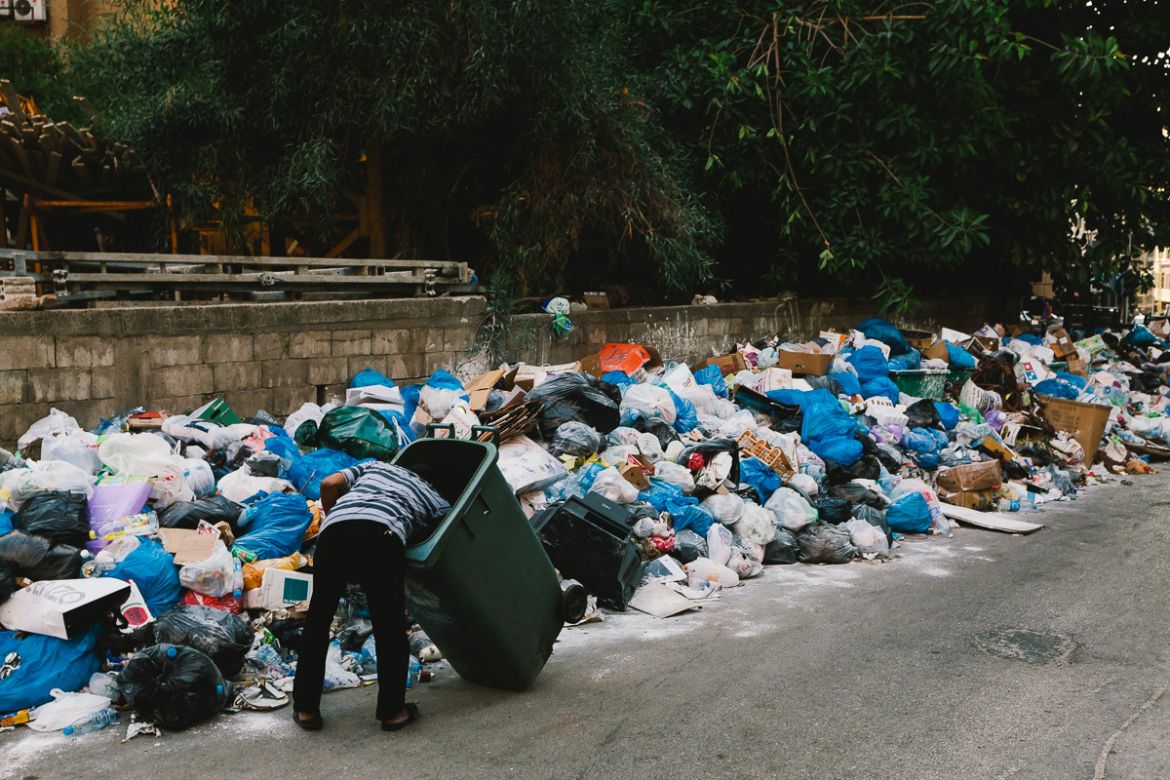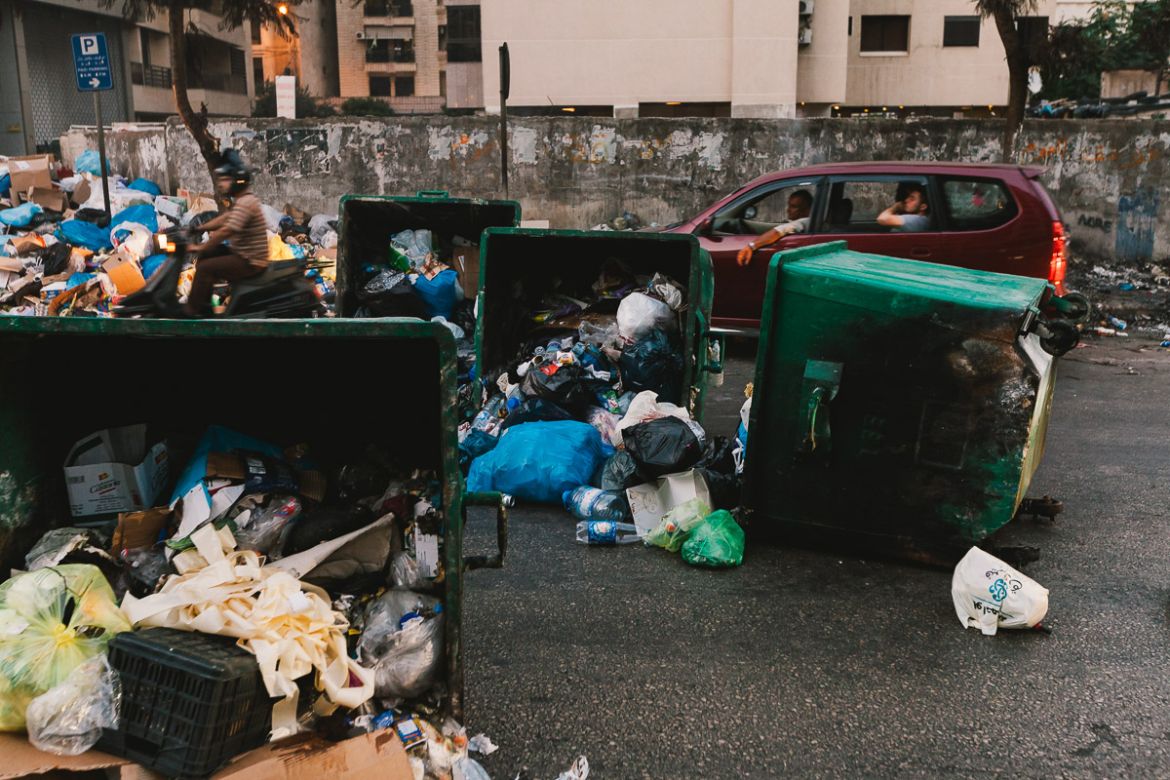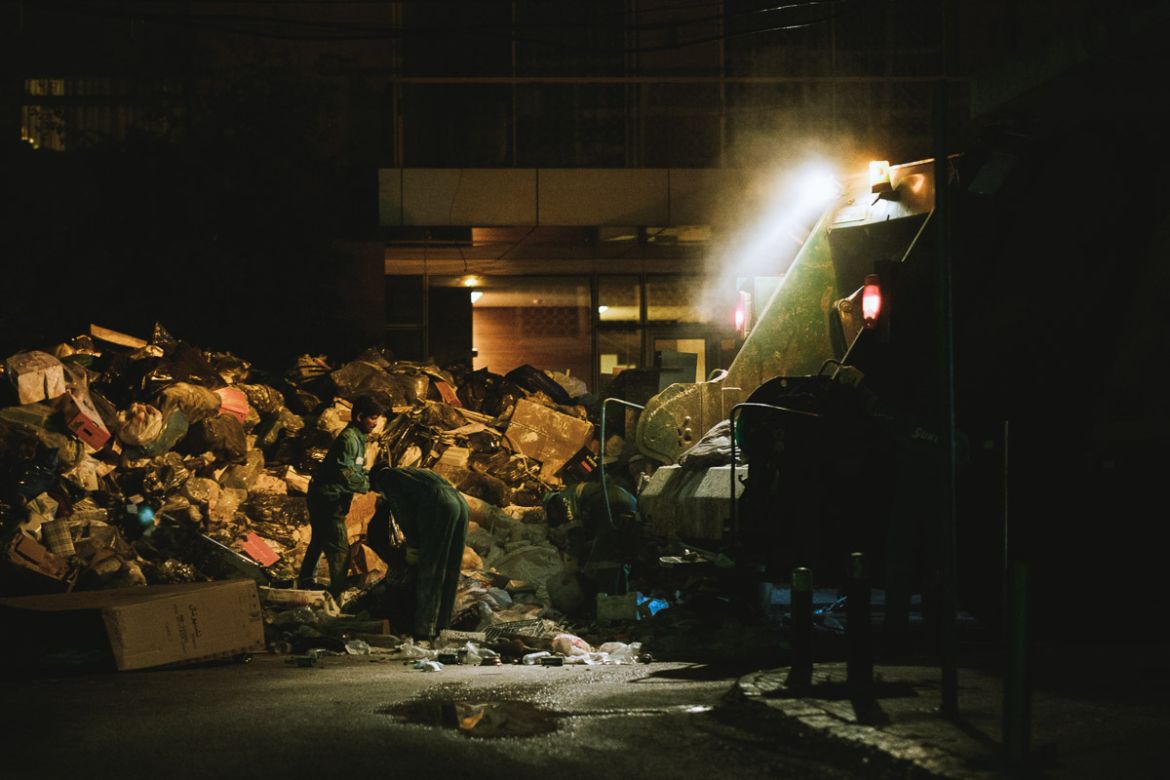In Pictures
Something is rotten in the state of Lebanon
Lebanon’s government finds itself at opposite ends of criticism, as protesters demand solution to garbage crisis.

Beirut, Lebanon – For over a week, garbage was not collected in the Lebanese capital, Beirut, and its surrounding areas. Bags of rubbish from households and businesses piled up on the streets in the mid-summer heat, overflowing and littering the streets. Lebanon’s main landfill, which was set up as a temporary dumping area and holds many million tonnes of garbage over its capacity, had been blocked by nearby residents since July 28.
Sukleen, the private company managing Beirut’s garbage, has since had nowhere to dispose of the approximately 2,000-3,000 tonnes produced daily in and around the city. The closure of the landfill coincided with the ending of the company’s contract with the government, exacerbating the crisis further.
More than an immediate problem, the piles of garbage serve as an uncomfortable reminder of a larger Lebanese political failure. The country has for many years faced nationwide infrastructure problems, including water shortage and daily electricity cuts.
For over a week, the government was unable to reach a solution. On Sunday and then on Monday, it was announced that collection would be resumed, but not where the garbage would be dumped or what to do in the future.
Activists gathered on Saturday in central Beirut, asking for long-term solutions including a system for recycling and fines for littering. Meanwhile, some residents resorted to burning garbage and blocking some of the main roads in and around Beirut.













